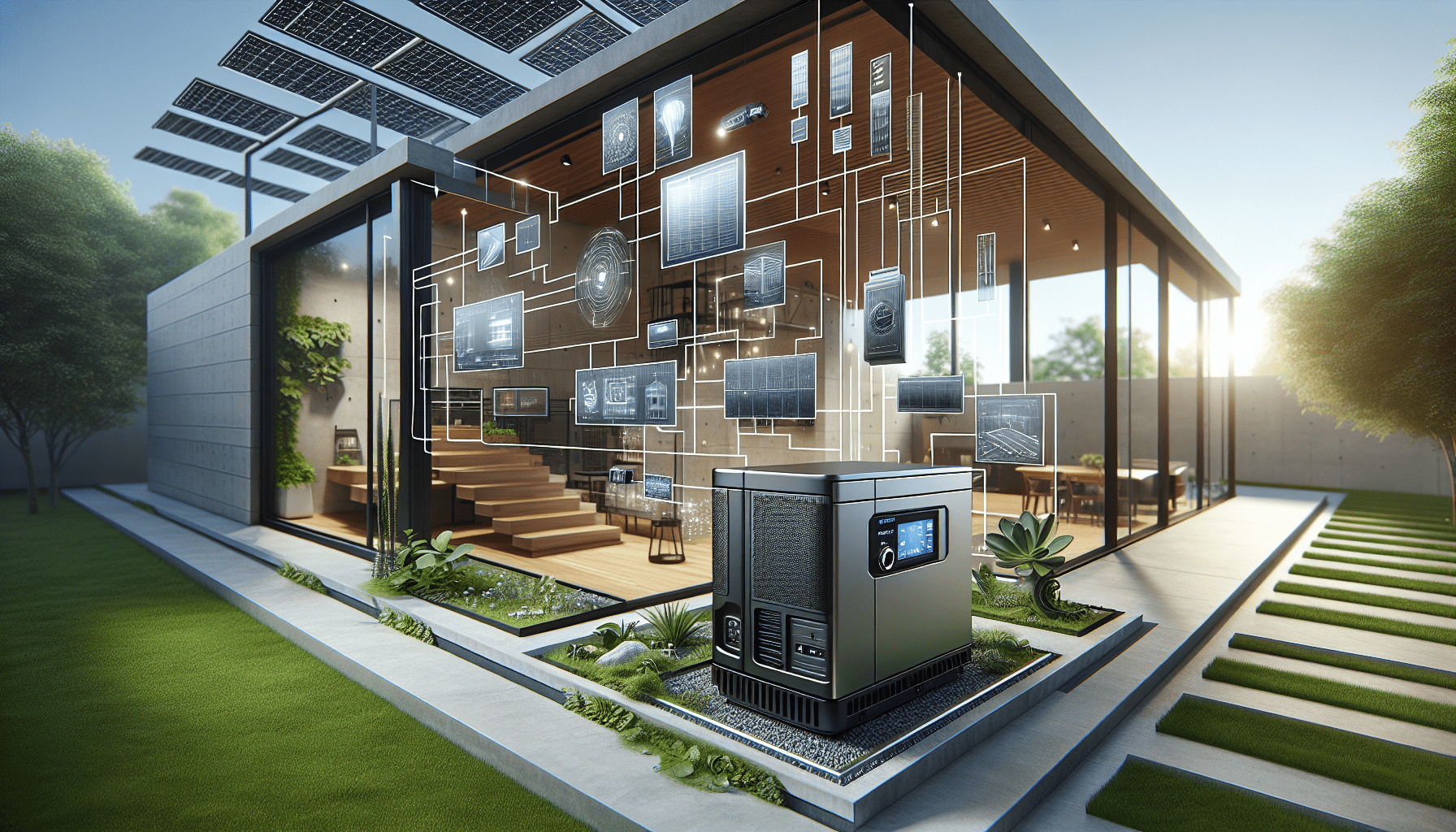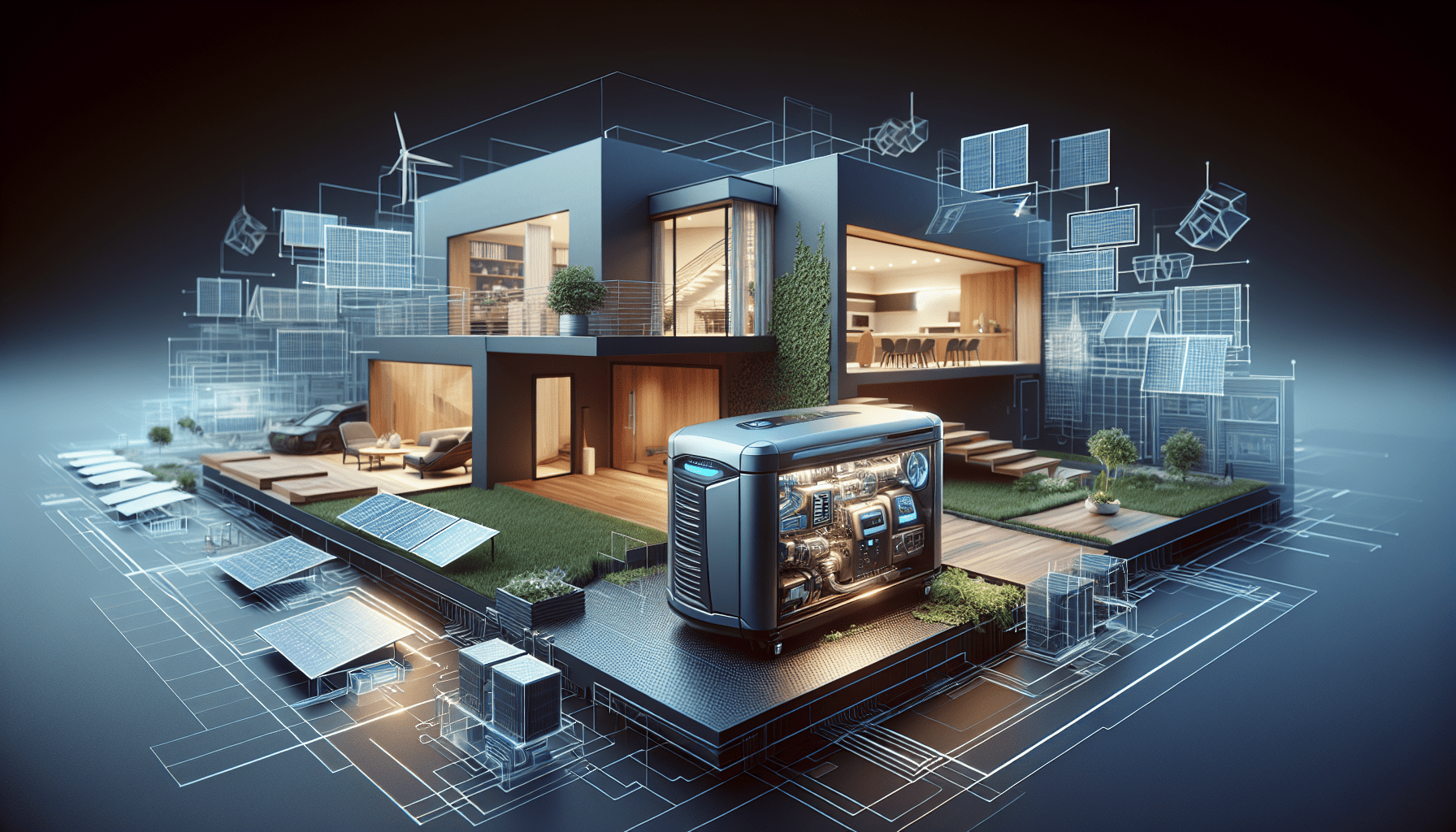Have you ever experienced a sudden power outage at home and found yourself wishing you had a reliable backup system to keep things running smoothly? Power interruptions can be more than just inconvenient; they can disrupt your daily life and cause unexpected complications. This article guides you through the different types of home power backup systems available, ensuring that you’re well-prepared next time the lights go out.

Understanding the Need for Power Backup Systems
Power backup systems are essential for maintaining uninterrupted power supply during outages, ensuring that your home remains functional. They provide peace of mind, protect electronic devices from damage, and can even save money on energy bills by using stored energy efficiently.
Why Power Outages Occur
Power outages can stem from various causes, including severe weather conditions, technical failures, and demand overloads. Recognizing these causes helps in planning and determining the appropriate power backup system for your home.
Benefits of a Home Power Backup System
Implementing a backup system offers numerous advantages. You gain reliability, consistent access to necessities such as lighting, HVAC systems, and refrigeration, and protect your electronic devices from surge-related damages.
Types of Home Power Backup Systems
Several types of backup systems cater to different needs and budgets. Each type offers unique features and benefits, making it crucial to understand them fully to make an informed decision.
1. Uninterruptible Power Supply (UPS)
A UPS acts as a buffer between your devices and the power source. It supplies power instantaneously during a blackout, allowing time for safe shutdown or transfer to a standby generator.
Features of a UPS
UPS systems typically offer battery backup and surge protection. They are ideal for short-term emergencies, particularly for home offices or personal computers that need sufficient time to save work and shut down properly.
2. Standby Generators
Standby generators provide robust backup capabilities, automatically kicking in during an outage. They are connected directly to your home’s electrical system and can run on various fuels, including diesel, natural gas, and propane.
Types of Standby Generators
- Diesel Generators: Known for durability and efficiency. Suitable for extended power cuts.
- Natural Gas Generators: Environmentally friendlier, relying on a steady gas supply.
- Propane Generators: Offer a cleaner energy alternative and longer shelf life for fuel storage.
3. Portable Generators
These generators offer flexibility and can be transported as needed. Ideal for temporary or mobile use, they require manual setup and monitoring.
4. Solar Power Systems
Solar power systems harness energy from the sun, converting it into electricity for home use. They can function independently (off-grid) or in conjunction with the existing electrical grid (grid-tied).
Components of a Solar Power System
- Solar Panels: Capture sunlight and convert it into direct current (DC) electricity.
- Inverter: Converts DC electricity from the solar panels into alternating current (AC), which powers your home.
- Battery Storage: Stores excess energy for use during outages or low sunlight periods.
5. Battery Backup Systems
Battery backup systems store energy from the grid or renewable sources for use during a power outage. They’re environmentally friendly and silent, offering a seamless transition during power loss.

Choosing the Right Backup System for Your Home
Choosing the ideal backup system involves evaluating factors such as your energy needs, budget, and space constraints.
Assessing Your Energy Needs
Determine the critical appliances and devices you want to keep operational during a blackout. This determines the power capacity you require from your backup system.
Budget Considerations
Costs can vary significantly between backup systems, from a few hundred dollars for a basic UPS to several thousand for a home standby generator or solar system.
Installation and Maintenance
Consider the ease of installation and ongoing maintenance for the chosen system. Some systems require professional installation and regular servicing, while others may be more straightforward to manage.

Pros and Cons of Each Backup System
Understanding the benefits and drawbacks of each backup option can help you weigh your alternatives more effectively.
| System Type | Pros | Cons |
|---|---|---|
| UPS | Quick install, surge protection, short-term use | Limited battery life, not suitable for all devices |
| Standby Generators | Powerful, automatic operation, long-term use | High cost, requires installation, can be noisy |
| Portable Generators | Cost-effective, flexible use | Manual operation, fuel storage required |
| Solar Power Systems | Sustainable, low running costs | High initial cost, weather-dependent |
| Battery Backup Systems | Quiet, eco-friendly, reliable backup | Limited capacity, high upfront investment |

Environmental Impact of Backup Systems
Considering the environmental impact of backup systems is crucial as energy efficiency and sustainability become increasingly important.
Sustainability of Renewable Options
Renewable energy-based systems like solar and battery storages have minimal environmental impact and contribute positively to reducing carbon footprints.
Fossil Fuel Dependency
Systems relying on diesel or gasoline generators have higher emissions and ecological footprints. They should be supplemented with cleaner alternatives when possible.

Conclusion
Choosing the right power backup system for your home involves understanding various types, their features, and their costs. By analyzing your specific needs and priorities, you can select a system that provides peace of mind during unexpected power outages. Whether it’s the reliability of a standby generator, the convenience of a UPS, or the sustainability of a solar system, having anticipated these needs keeps your home resilient and comfortable.
Remember, a well-informed decision today guarantees that you won’t be caught off guard tomorrow, ensuring you enjoy continuous comfort and security no matter what the weather—or the grid—throws your way.

